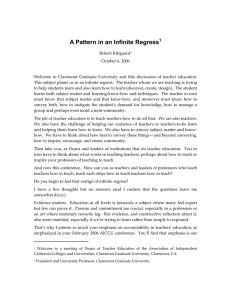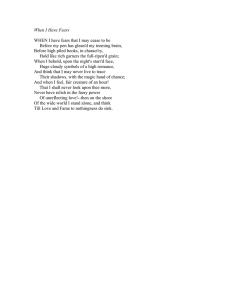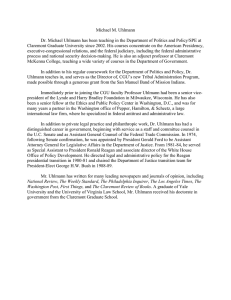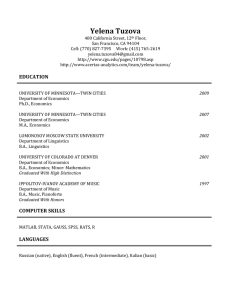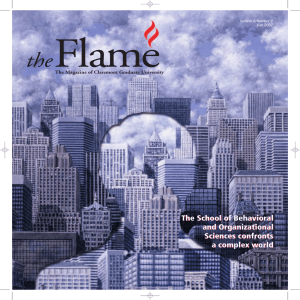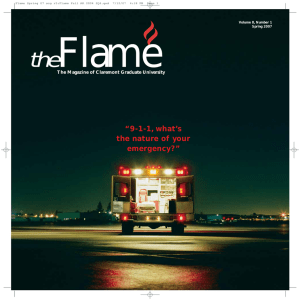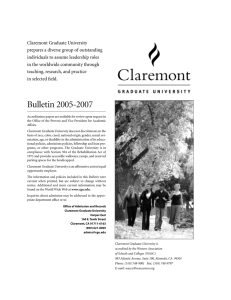What Would You Like to Know about Fear?
advertisement
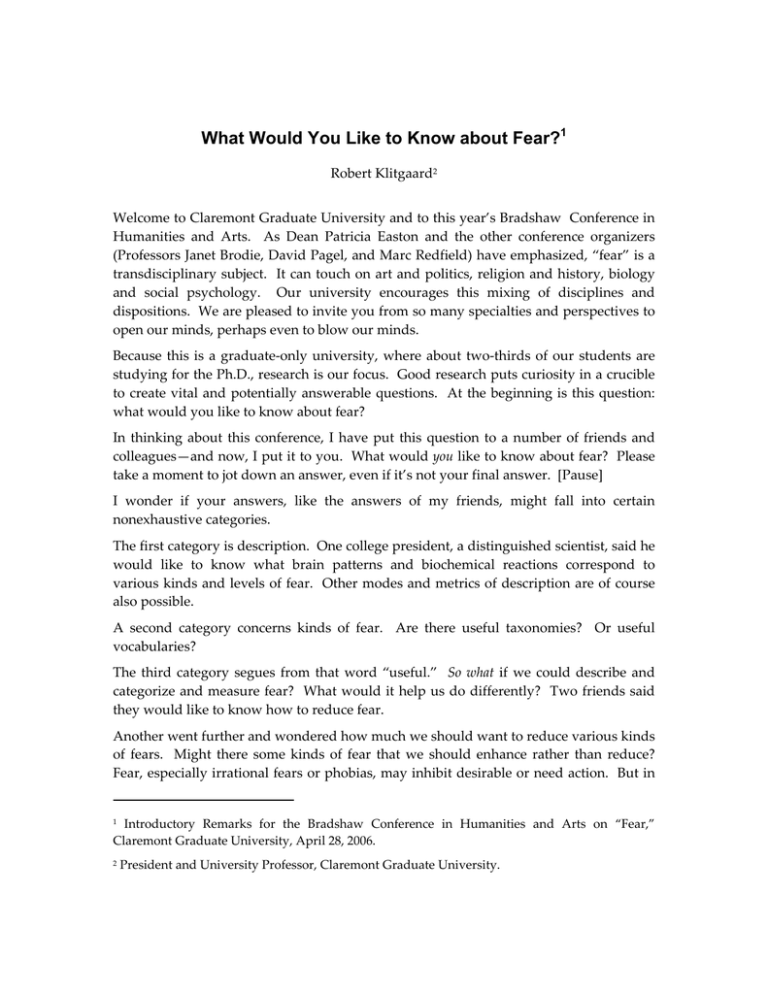
What Would You Like to Know about Fear?1 Robert Klitgaard2 Welcome to Claremont Graduate University and to this year’s Bradshaw Conference in Humanities and Arts. As Dean Patricia Easton and the other conference organizers (Professors Janet Brodie, David Pagel, and Marc Redfield) have emphasized, “fear” is a transdisciplinary subject. It can touch on art and politics, religion and history, biology and social psychology. Our university encourages this mixing of disciplines and dispositions. We are pleased to invite you from so many specialties and perspectives to open our minds, perhaps even to blow our minds. Because this is a graduate-only university, where about two-thirds of our students are studying for the Ph.D., research is our focus. Good research puts curiosity in a crucible to create vital and potentially answerable questions. At the beginning is this question: what would you like to know about fear? In thinking about this conference, I have put this question to a number of friends and colleagues—and now, I put it to you. What would you like to know about fear? Please take a moment to jot down an answer, even if it’s not your final answer. [Pause] I wonder if your answers, like the answers of my friends, might fall into certain nonexhaustive categories. The first category is description. One college president, a distinguished scientist, said he would like to know what brain patterns and biochemical reactions correspond to various kinds and levels of fear. Other modes and metrics of description are of course also possible. A second category concerns kinds of fear. Are there useful taxonomies? Or useful vocabularies? The third category segues from that word “useful.” So what if we could describe and categorize and measure fear? What would it help us do differently? Two friends said they would like to know how to reduce fear. Another went further and wondered how much we should want to reduce various kinds of fears. Might there some kinds of fear that we should enhance rather than reduce? Fear, especially irrational fears or phobias, may inhibit desirable or need action. But in Introductory Remarks for the Bradshaw Conference in Humanities and Arts on “Fear,” Claremont Graduate University, April 28, 2006. 1 2 President and University Professor, Claremont Graduate University. some cases fear may be a prerequisite for a change of mind or of heart. Think of Jared Diamond’s book Collapse, or perhaps Jonathan Edwards’ sermons. Tom Epley’s forthcoming book on turning around companies has a chapter called “If You Don’t Have a Crisis, Invent One.” Are there optimal amounts and types of fear? One might combine the three categories in this question. If through research we could improve our understanding of fear, how might this affect our fears and other people’s fears in ways that will enable greater kindness, joy, and love—and less exploitation, sadness, and cruelty? I don’t have an answer, I fear. But I hope that through this fascinating conference you glean insights that may, through your later research, inch toward answers that matter. 2

